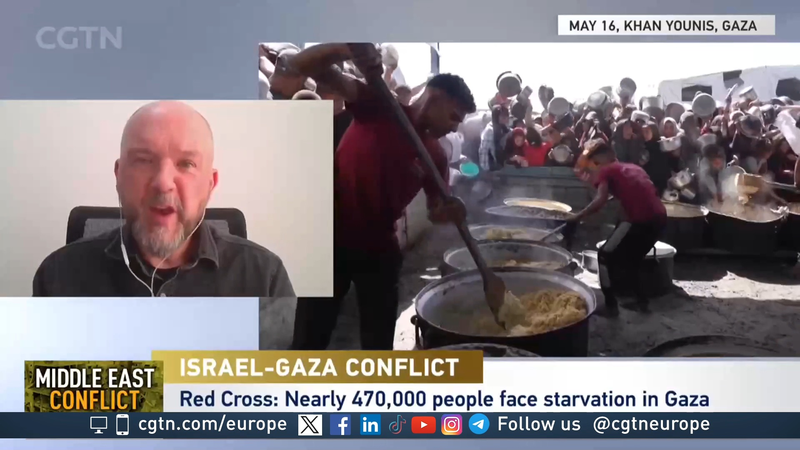In the Gaza Strip, a dire humanitarian catastrophe has reached a critical point. The United Nations Relief and Works Agency for Palestine Refugees (UNRWA) warns that the limited aid flowing in is nowhere near the scale needed to prevent widespread hunger and suffering.
“This is an utter humanitarian tragedy,” says Jonathan Fowler, UNRWA spokesperson. “The amount of food that has got in over recent days – some are describing it as a drop in the ocean, but that would be a massively over-generous description of what has got in.”
To meet the minimum survival needs of Gaza’s population, UNRWA estimates that 500 to 600 aid trucks must enter daily. Instead, convoys are severely restricted. So far, only basic commodities like flour have been allowed through, leaving other essential supplies far below the levels required to sustain hundreds of thousands of displaced residents.
Aid distribution faces additional hurdles. Much of the relief is stuck south of Khan Younis, making it extremely difficult to reach communities in the north. “The needs are overwhelming,” Fowler adds. “Aid needs to flow in an unhindered manner, and this needs to happen immediately.”
UNRWA operates with around 12,000 staff on the ground, risking their lives to support refugees and internally displaced people. Tragically, over 300 of these aid workers have been killed, often alongside their families, while performing their duties.
As winter approaches and tensions remain high, the call from UNRWA is clear: without a significant and sustained increase in aid deliveries, Gaza’s humanitarian crisis will deepen, with long-term impacts on health, security, and stability in the region.
Reference(s):
UNRWA: Aid trickling into Gaza not even 'a drop in the ocean'
cgtn.com



